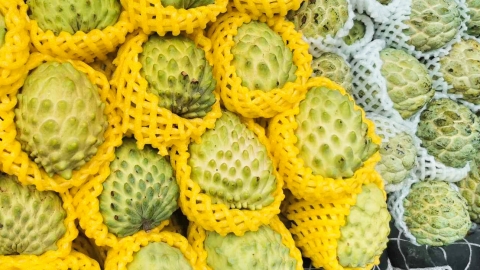What should not be eaten with soursop?
Cherimoya is generally not recommended to be consumed with foods high in tannins, high-sugar foods, cold-natured foods, greasy foods, or highly acidic foods. Detailed explanations are as follows:

1. Foods high in tannins: Fruits such as persimmons, strong tea, and pomegranates contain high levels of tannins. When consumed with cherimoya, tannins can bind with proteins in the fruit to form indigestible precipitates.
2. High-sugar foods: Consuming cakes, chocolates, candies, and other high-sugar foods together with cherimoya may lead to excessive sugar intake. Cherimoya itself has a relatively high sugar content; excess sugar entering the body can cause rapid spikes in blood glucose levels, which is unfavorable for blood sugar control.
3. Cold-natured foods: Cold-natured foods such as watermelon, pear, and crab may increase internal coldness when eaten with cherimoya. Since cherimoya is inherently cooling in nature, combining it with other cold-natured foods may irritate the gastrointestinal tract, impair digestive enzyme activity, and potentially cause symptoms such as diarrhea and stomach pain due to cold exposure.
4. Greasy foods: Fried chicken, fatty meat, youtiao (fried dough sticks), and other greasy foods are high in fat and difficult to digest. Although the dietary fiber in cherimoya aids digestion, excessive consumption may slow gastrointestinal motility.
5. Highly acidic foods: Strongly acidic foods such as lemon, vinegar, and hawthorn may irritate the gastric mucosa when consumed with cherimoya. The combination of sugars in cherimoya and acidic substances may stimulate excessive gastric acid secretion, leading to discomfort such as heartburn and acid reflux.
Individuals with spleen-stomach deficiency and cold constitution or those with diabetes should reduce their frequency of consuming cherimoya. If gastrointestinal discomfort occurs after consuming incompatible foods, drinking warm water may help alleviate symptoms. Persistent symptoms require timely dietary adjustments or consultation with a healthcare professional.





